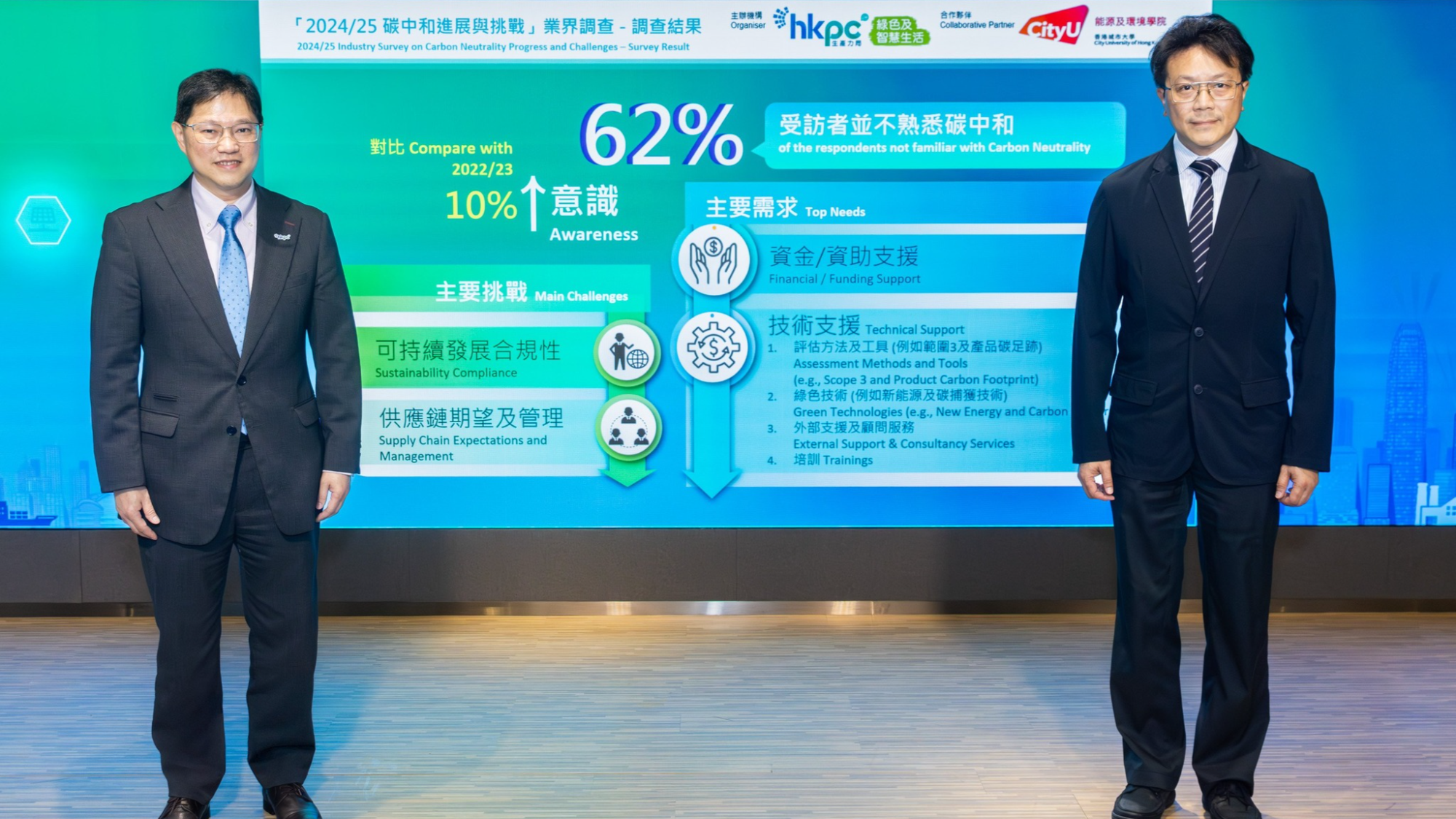
With the clock ticking toward Hong Kong’s 2050 carbon neutrality deadline, local businesses are ramping up their carbon cuts, but daunting financial costs, lukewarm price incentives, and scarce affordable green tech threaten to derail their green drives, an industry survey revealed on Thursday.
A joint survey by the Hong Kong Productivity Council (HKPC) and City University of Hong Kong (CityU) School of Energy and Environment found corporate ignorance of carbon neutrality dropped 10 percentage points since 2022-23, but 62 percent of companies remain unfamiliar with the concept.
The Carbon Neutrality Progress and Challenges 2024-25 — building on its debut 2023-24 findings – polled 126 enterprises, of which 51 percent were large corporations or organizations, while the rest represented small and medium-sized enterprises (SMEs).
READ MORE: HK reports 25% fall in greenhouse gas emissions from 2014 peak
Survey results showed tangible headways in carbon reduction planning and tracing, with the number of companies having not yet conducted audits or regular assessments down 14 percentage points year-on-year.
Still, a stark 78 percent of enterprises lack comprehensive carbon neutrality targets, despite a marginal 3-percentage-point improvement year-on-year, mostly because of insufficient external support and a dearth of technical know-how.
Mirroring prior findings, enhancing brand image, reputation, and competitiveness remains the primary drivers propelling firms to set carbon goals.
Meanwhile, confidence in resource readiness has been cratering, the survey indicated, as a mere 33 percent now believe they possess adequate resources for the carbon-neutral transition — a 22-percentage-point plunge.
In the face of the mounting global sustainability mandates and supply chain pressures, over half surveyed firms reported being asked — or asking suppliers — for production-related carbon data.
Crucially, over 70 percent of these requests stem directly from the European Union (EU)’s Carbon Border Adjustment Mechanism and Scope 3 emission calculations, having been phased in since May 2023 and slated to be formally launched on Jan 1.
READ MORE: Tse: HK’s per capita carbon emissions down almost 30% since 2014
“The findings highlight the practical needs of industry … and offer valuable data for reference,” Michael Leung Kwok-hi, chair professor at CityU’s School of Energy and Environment, told reporters during the survey results’ release.
“These insights will support the government, academia and relevant organizations in formulating effective strategies and providing the necessary support to ensure the industry is fully prepared to meet future challenges,” he said. The university is hammering out a plan with HKPC to translate ESG (environmental, social and governance) and carbon neutrality-related research results to industrial use, he added.
Echoing the call, Keith Choy, general manager of HKPC’s Green Living and Innovation Division, pledged that HKPC will keep up its commitment to help enterprises better embed carbon management into their daily operations and truly grasp their climate impact.
Contact the writer at wanqing@chinadailyhk.com


